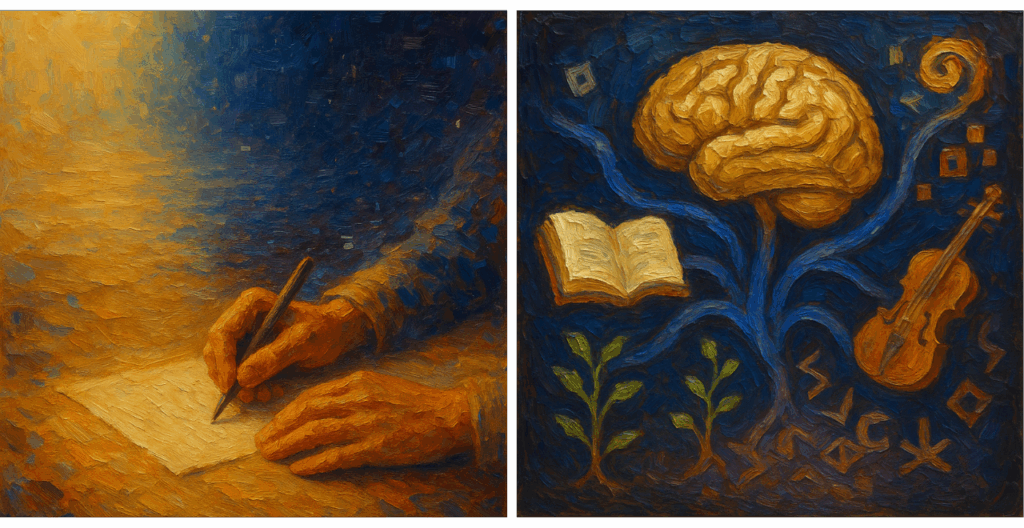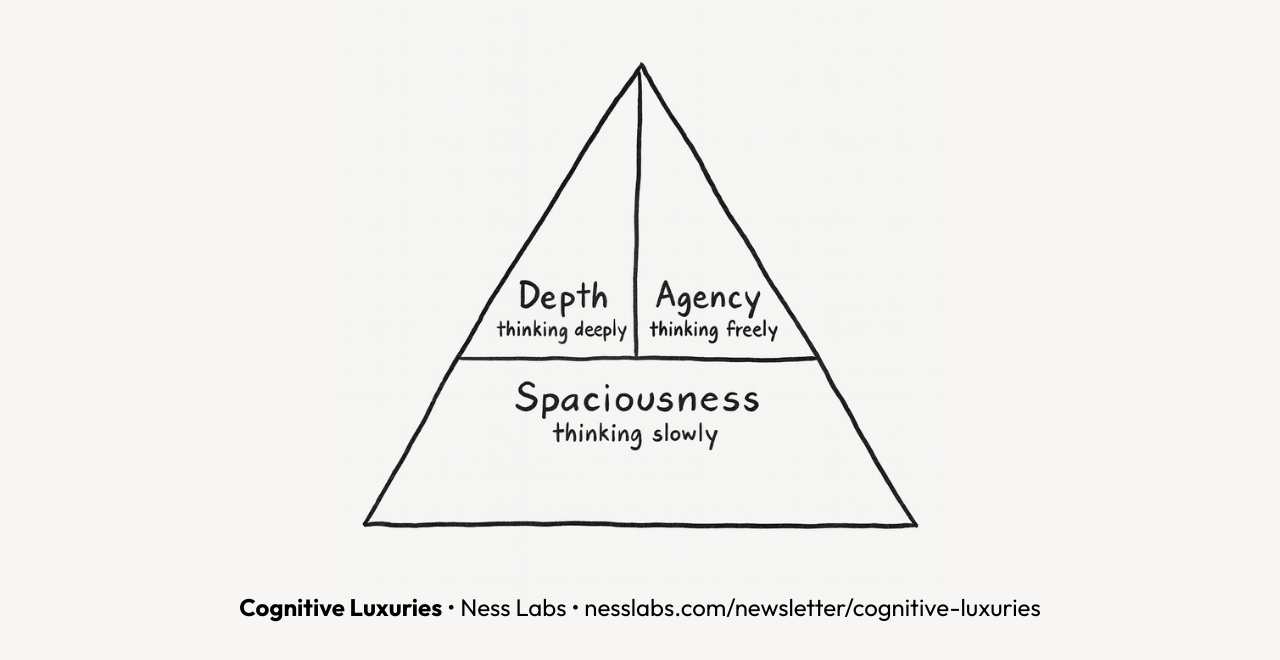
Have you noticed it’s gotten harder to read a book? Or have those deep conversations that used to stretch late into the night? Maybe you reach for your phone during every spare moment, even when you want to think about something important.
If so, you’re not alone. A recent New York Times article argues that thinking is becoming a luxury good, and that our capacity to truly think our own thoughts is under attack from the very technologies meant to help us.
So what exactly are we losing, and how can we get it back? Let’s explore the most precious cognitive luxuries and how to reclaim them.
The Three Types of Cognitive Luxuries
What I call cognitive luxuries aren’t just pleasant mental activities – they actually rewire our brains for the better. For instance, research shows that developing reading skills changes our neural architecture, boosting vocabulary, analytical thinking, and our ability to concentrate.
All cognitive luxuries share something in common: they need time, space, and sustained attention in a world designed to fragment these. I find it helpful to think about them in three categories:
1. Spaciousness (thinking slowly) is respite from constant input and urgency. It’s when you can let your mind rest and reflect – those moments when you can actually hear yourself think, when you’re not juggling notifications, deadlines, and digital noise, when you can daydream or even be bored.
2. Agency (thinking freely) is your ability to create rather than just consume. This includes learning across domains, generating new ideas, following your curiosity for its own sake rather than for output or approval. It’s the difference between scrolling through others’ content, at the mercy of the algorithm, versus freely exploring your own thoughts and making connections.
3. Depth (thinking deeply) is your ability to engage fully with challenging ideas, emotions, or tasks – focusing on difficult problems and complex questions, falling into rabbit holes for hours, practicing metacognition and interoception to dig deeper into your own thoughts and emotions.
Spaciousness is the foundation of all cognitive luxuries, as it enables both agency and depth. Without mental space and time, you can’t create meaningfully or think deeply.
Unfortunately, our modern world actively works against all three. Smartphones fragment attention, social media optimizes for endless engagement, and our work culture often rewards busyness at the expense of slow, free, and deep thinking.
But there are simple ways to push back and create space for cognitive luxuries in your personal and professional life.
How to Cultivate a Rich Inner Life
Reclaiming cognitive luxuries can feel like an uphill battle, but it doesn’t have to be complicated. Start with small, sustainable changes that gradually expand your mental space. Here are five strategies that can help:

• Create phone-free zones. Begin with one room or one hour a day where devices are off-limits. This could be your bedroom, or the first hour when you wake up. This builds spaciousness by letting your mind wander without digital interruption.
• Take thinking walks. You don’t need a full “Think Week” like Bill Gates. Go for short walks around the block without music, podcasts, or any input. Let your mind digest recent experiences, work through problems, or just drift.
• Start a low-stakes creative practice. Try something purely for exploration such as sketching, morning pages, learning an instrument, building something with your hands. Remove any pressure for it to be good or useful.
• Curate your information diet. Choose what enters your mind as intentionally as you would food. Replace some social media scrolling with long-form articles, some podcasts with audiobooks, some news with fiction.
• Join or start a discussion group. Whether it’s a book club, philosophy café, or just regular chats with a thoughtful friend, commit to social rituals that reward deep engagement with ideas.
Most importantly, experiment! Try different approaches and notice what works for you. You can even incorporate a Plus Minus Next review to capture potential tweaks.
The aim here isn’t to become a digital monk, but to intentionally create space for thinking that will make your life richer and more meaningful.
The ability to think deeply, create meaningfully, and reflect spaciously shouldn’t be privileges available only to the wealthy, and cognitive luxuries shouldn’t feel luxurious – they’re basic human capacities we’re losing to convenience and distraction.
The good news is that reclaiming these capacities doesn’t require dramatic life changes. It starts with tiny experiments: reading a book, walking in silence, or journaling for a few days. So, what cognitive luxury will you reclaim first?
Tiny Experiment of the Week
Ready to put these ideas into practice? Try this week’s tiny experiment to help you reconnect with your thoughts:
I will [journal for 5 minutes everyday] for [5 days].
You can do that in a notebook, jot some quick bullet points on your phone, or dictate your ideas using a recorder app while commuting to work. Want to dig deeper into designing your own tiny experiments? Get your copy of the book.
